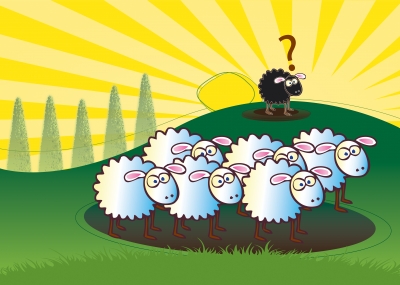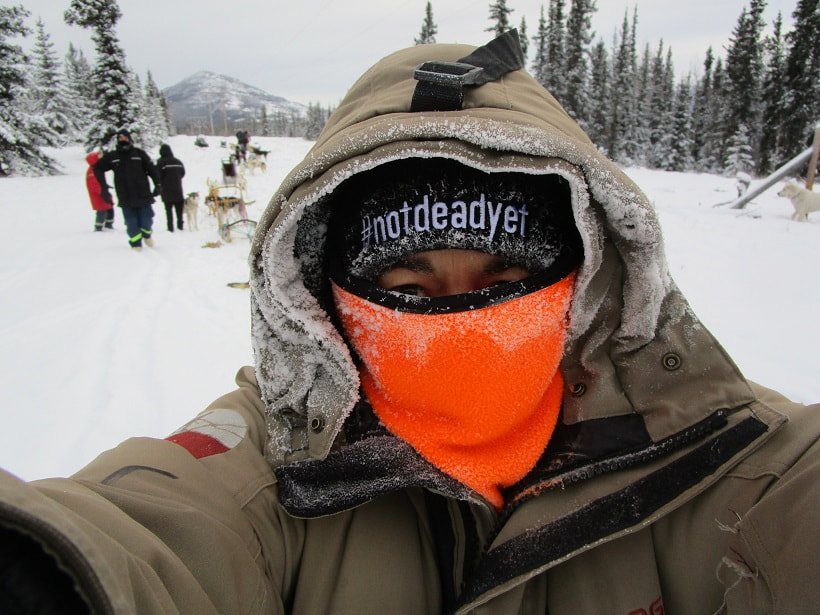|
Since childhood, I’ve often wondered how I ended up in my family. I noticed early on that I didn’t fit in and was astonished to realise I had nothing in common with them, apart from the birth thing. Now, I’m pretty certain I wasn’t adopted. First of all, Greeks aren’t the adopting type; and second, my relatives constantly remind me that I look like and carry not only my paternal grandmother’s name, but also her personality traits. I’m sure that’s not always meant to be a compliment - apparently, she was stubborn, strong-willed and opinionated. So really, there’s no reason for me being the black sheep of the family. According to various online dictionaries, this idiom refers to: • An odd or disreputable member of a family • A person not living according to family rules or customs • A worthless or disgraced family member I guess it depends on your definition of odd or disreputable, although I readily admit I’m not one to follow family rules or expectations. And despite my rebellious behaviour, I haven’t really done anything that could be labelled disgraceful (if you exclude leaving home before marriage, not being married and not having children). But why the black sheep reference? It isn't entirely clear why black sheep were selected to symbolize worthlessness. Possibly it’s just the linking of black things with bad things. It may also be because shepherds disliked black sheep as their fleeces weren't suitable for dying and so were worth less than those of white sheep. (Source: phrases.org.uk) However, that idea is refuted by this well-known nursery rhyme: Baa baa black sheep, have you any wool? Yes sir, yes sir, three bags full! One for the master, one for the dame, And one for the little boy who lives down the lane. Isn’t it amazing how a Google search can lead you astray from your original ponderings? (Yes, that’s a real word – I checked it in the dictionary). Interesting facts about black • A black cat crossing your path is considered bad luck in many cultures • Black is associated with sophistication and power; think: tuxedos, little black dress, limousines and judge's robes • Musicians in an orchestra pit often wear black, so they don’t draw attention away from the stage performers. Source: Sensational Color Here are a few more expressions: • Black comedy: creating comedy out of a tragic event or situation • Blackball: voting against someone in a secret manner to prevent them from becoming a member of a club • Blackmail: to demand payment or action by means of a threat • Black day: a bad day; symbolizes a tragic event, such as black Tuesday or black Friday. Err, yes, my journalistic research instincts got carried away! Wool, sheep and black cats aside, I’ve pondered for many years about why I ended up with this particular family. I subscribe to the spiritual belief that we choose our families before birth, which means I didn’t arrive by accident. (I’m not here to argue this point; you either believe it or you don’t, in which case we’ll agree to disagree). Possible reasons for this choice include: • Karma • I didn’t think it through properly • I like a challenge • It was Plan B Nonetheless, looking back over my life I can see how my family circumstances moulded me into the person I am today. If I’d had a cosy, loving and supportive home life as a child I wouldn’t have embarked on my journey of discovery. I probably wouldn’t be living here on the Sunshine Coast, either. I needed to be the black sheep rebel to forge my own path and destiny. As the first born child, I was inevitably the trail blazer; it was in my genes, in my karma and my astrology chart. Image by Simon Howden FreeDigitalPhotos.net The oldest child syndrome
Psychiatrist Alfred Adler believed that birth order affects personality. As the firstborn, I therefore had a choice to be strong willed and independent or a compliant people-pleaser. Can you guess which one I chose? Attributes of the first born child: • Natural leader/bossy (I can’t argue with that one - tick) • Achiever/perfectionist (tick) • Studious/conscientious (tick) • Serious/solitary (tick) • Teacher/nurturer (tick) These children often develop a diverse vocabulary at an early age, are independent, strong-willed and able to adapt easily to many situations. First born children are known to be highly organized and are often excellent leaders, pursuing careers in education, entertainment, politics (blah!) and entrepreneurship (double blah!). Source: essortment This got me thinking: are first born children naturally the rebel or black sheep of the family? Apparently not; another Google search revealed that it’s often the middle children who are the rebels, although last born children can also have these tendencies in an attempt to get attention. But not so in our family. As the bossy boots, I claimed the independent rebel label as my cause, which wasn’t open for negotiation with my two brothers. After all, I was here first. Are you the black sheep of your family?
10 Comments
Jenny Duckworth
31/5/2012 12:19:59 am
As an only child, it's not quite so easy to work this out! I didn't have to struggle to be noticed. My cousins lived overseas at first, and then in Melbourne, so I didn't see a lot of them. I did become a teacher, a cub leader, and have been on lots of committees!!! I don't think I've done many outrageous things, but others may think differently.
Reply
Hari Kotrotsios
31/5/2012 09:17:13 am
Jenny, I guess you qualify as the first born and technically the last born, which would give you a variety of attributes! I'd like to hear about some of your outrageous adventures one day.
Reply
Kate Alama
31/5/2012 04:51:57 am
I am the 'Airy Faiy' sheep.
Reply
Hari Kotrotsios
31/5/2012 09:22:16 am
Welcome on board Airy Fairy!
Reply
31/5/2012 07:40:56 am
Hi Hairi...Good one!
Reply
Hari Kotrotsios
31/5/2012 09:24:09 am
Hi Bernie - indeed, each generation is shaped by the epoch they're born into, so no wonder we don't always understand each other!
Reply
31/5/2012 11:54:18 am
Clarissa Pinkola Estes, wonderful purveyor of meaningful tales, refers to those of us who believe that the stork got the wrong address as "mistaken zygote". The Ugly Duckling is our good yarn.
Reply
Hari Kotrotsios
31/5/2012 12:49:37 pm
Great insights and supportive experiment, Ilyhana. That would also explain the group dynamics when first borns have to deal with second and last born people!
Reply
Therese Babcock
31/5/2012 12:41:36 pm
I loved this chapter Hari. I can relate to so much of it, moving away from the tribe and it's values. Just a little addition I'd like to make, as an eldest it seemed like so damn much was expected of me, while the other two below me got away with murder. Could it be that we put the expectation on ourselves??
Reply
Hari Kotrotsios
31/5/2012 12:52:12 pm
That's a great point, Therese - it's probably a combination of both: there's an expectation that first born children perform to a high standard, and as perfectionists, we aim to be the best. It's a bit of a Catch 22, don't you think?
Reply
Your comment will be posted after it is approved.
Leave a Reply. |
 Portuguese Camino 2019 Portuguese Camino 2019
Travel blogs
New Zealand 2008 Tibet 2007 New Zealand 2006 Melbourne 2006 United Kingdom 2004 Athens Olympics 2004 Peru 2003 Beijing to Athens 1994 Nepal 1991 Categories
All
Archives
December 2019
|
|
I acknowledge the traditional Custodians of the land on which I work and live, the Gubbi Gubbi / Kabi Kabi and Joondoburri people, and recognise their continuing connection to land, the waters and sky. I pay my respect to them and their cultures; and to Elders past, present and emerging.
|
© 2024 HARI KOTROTSIOS
|



